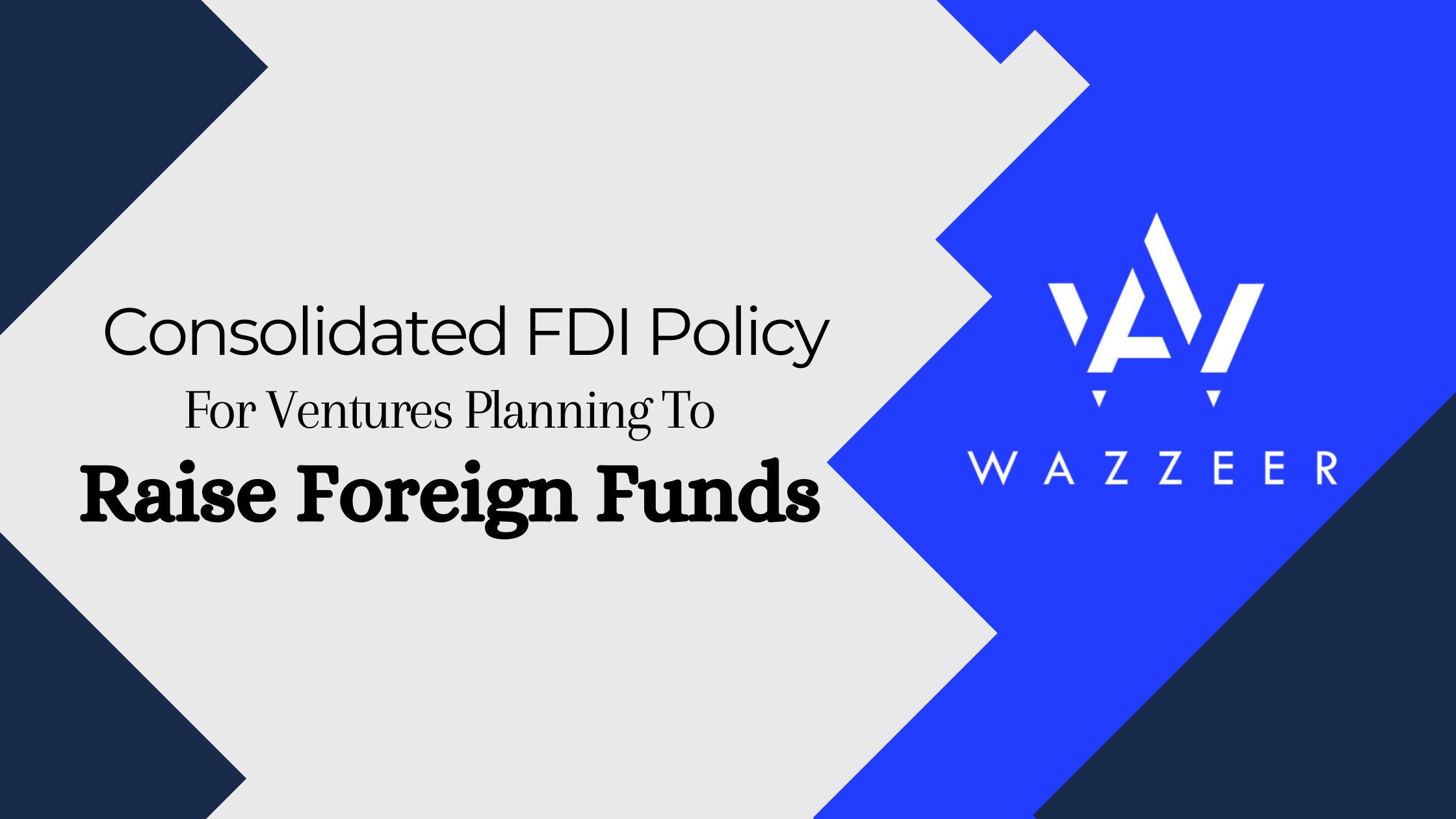In an era of globalisation and interconnected economies, attracting foreign investments has become a crucial aspect of economic growth for nations worldwide. India, with its burgeoning startup ecosystem and dynamic business environment, has positioned itself as an attractive destination for foreign direct investments (FDI). To facilitate a smoother and more transparent inflow of foreign funds, the Indian government has implemented a Consolidated FDI Policy, providing a comprehensive framework for ventures planning to raise foreign capital.
Understanding the Consolidated FDI Policy
The Consolidated Foreign Direct Investment (FDI) Policy is a single-point reference document that encompasses all the policies and regulations governing foreign investments in various sectors in India. The primary objective is to simplify and streamline the regulatory framework, making it easier for foreign investors to navigate the Indian market.
Key Features of the Consolidated FDI Policy
1. Unified Guidelines:
One of the significant advantages of the Consolidated FDI Policy is the consolidation of guidelines across different sectors. This unified approach eliminates the need for investors to refer to multiple documents, promoting a more transparent and investor-friendly environment.
2. Automatic Route vs. Government Approval:
The policy categorizes sectors into two routes – the Automatic Route and the Government Approval Route. Under the Automatic Route, foreign investors can invest without seeking prior approval, while certain sectors require government approval before FDI is allowed. The intent is to simplify procedures and encourage a greater influx of foreign capital.
3. Sector-Specific Caps:
The policy stipulates sector-specific caps on FDI to regulate the extent of foreign ownership in various industries. Understanding these caps is crucial for ventures planning to raise foreign funds, as exceeding the prescribed limits may lead to regulatory hurdles.
4. Investment Conditions:
In addition to caps, the Consolidated FDI Policy outlines specific conditions that foreign investors must adhere to in certain sectors. These conditions are designed to safeguard the interests of the Indian economy and may include requirements related to technology transfer, local sourcing, and employment generation.
Navigating FDI Policy for Venture Capitals and Startups
For ventures in the startup ecosystem, understanding the nuances of the FDI Policy is essential for successful fundraising. Here are some key considerations:
1. Eligibility for FDI:
Startups engaged in sectors eligible for FDI must ascertain their eligibility under the Automatic or Government Approval Route. For sectors falling under the Automatic Route, compliance is relatively straightforward, while those under the Government Approval Route require diligent scrutiny.
2. Sector-Specific Regulations:
Startups should be aware of any sector-specific regulations, caps, or conditions imposed by the FDI Policy. For instance, sectors such as e-commerce, digital media, and education may have unique guidelines that impact foreign investment.
3. Documentation and Compliance:
Ensuring compliance with documentation requirements is critical. Startups planning to raise foreign funds must meticulously prepare and submit the necessary documents to regulatory authorities. This may include business plans, financial statements, and details of the proposed investment.
4. Engaging Legal and Compliance Experts:
Given the complexity of FDI regulations, startups are advised to engage legal and compliance experts. Professionals well-versed in Indian corporate laws can provide invaluable guidance, ensuring that startups navigate the FDI landscape successfully.
In conclusion The Consolidated FDI Policy serves as a comprehensive guide for ventures seeking foreign investments in India. Navigating the intricacies of this policy is vital for startups and businesses looking to tap into the vast potential of the Indian market. By understanding the Automatic and Government Approval Routes, sector-specific regulations, and compliance requirements, ventures can position themselves strategically to attract foreign funds and contribute to the growth and development of the Indian economy. As India continues to embrace globalization, the Consolidated FDI Policy stands as a testament to the government’s commitment to fostering a conducive environment for foreign investors and businesses alike.
